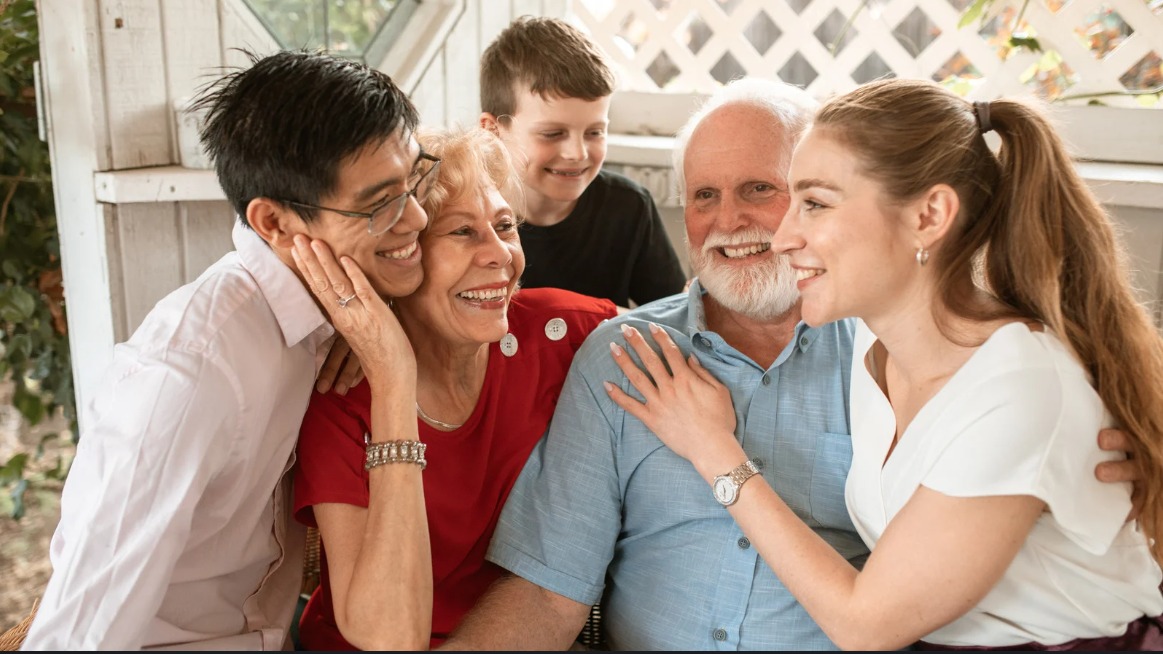
Dear Katherine: I’m Nervous About the Teen Years!
Dear Katherine,
I’ve often heard you talk about why controlling forms of discipline and punishments are ineffective. But what about when kids are in danger?
Thankfully, I have yet to be in this specific position. Still, my kids are getting older. I’m worried about protecting them throughout their teen years without resorting to authoritarian discipline or punishment. As you know, teenagers can be notoriously difficult to communicate with!
How can I keep them safe in this phase of life while staying true to the ideals of conscious parenting?
Sincerely,
Concerned
Hi Concerned,
You bring up some great points that I’m happy to help you address.
I’m sensing two separate issues in your message: 1) protecting kids from danger without using force and 2) communicating effectively with teenagers.
Let’s tackle both!

1. How to protect kids from danger without authoritarian discipline or force
Our number one job as parents is to keep our kids safe. If your child runs out into traffic, you don’t think twice; you grab them. It doesn’t matter that physically grabbing them is a use of force. We do what we must to protect our kids.
But of course, life isn’t always that black and white. As children get older, protecting them becomes more of a gray area.
It’s important to balance protecting kids with honoring their independence, and that starts with understanding the difference between using force as a protective measure (e.g., stopping a child from walking into traffic) and using it to command obedience or compliance (e.g., resorting to phrases like, “Because I said so”).
Let’s say your teenager wants their friend to drive them home after curfew, but you know this friend only just got their driver’s license and can’t yet legally have other kids in the car.
There are two ways to handle this situation. . .
You can put your foot down and say no, and when your child presses you, you can say, “Because I said so.”
Or you can try a more respectful approach. “I like this friend of yours, and I’m happy to let you spend time with them, but I would hate for something bad to happen to either one of you in the car. What are the alternatives to this friend driving?”

Each example is a way of saying no. But in the first one, you’re using dominance to end the conversation. This approach may get you the desired outcome, but it won’t help your teenager understand the dangers of getting in a car with this friend. It will just make them feel misunderstood. It will also activate the famous 3Rs (retaliation, rebellion, and resistance).
In the second example, you’re leaving the door open for parent-child communication and giving some of the power back to your kid.
See the difference?
Now, let’s address the second issue.
2. How to communicate effectively with teenagers
You mention that you aren’t sure how to parent teenagers, who are notoriously difficult to reach, without punishment or authoritarian discipline. But if a person is already hesitant to listen, do you think asserting dominance or using force will make them more or less inclined to do so?
I think we both know the answer. The good news is that you can get ahead of this catch-22 by building a foundation of trust.
You can’t protect your children if they don’t share their personal lives with you. They must have ample opportunity to confide in you about dating, friends, or schoolwork—and that you’re a safe sounding board for issues that come up.
Parenting wins don’t happen when you yell at your kid for coming home late. They happen when your child tells you about their friend who often stays out past curfew, and you explain to them, without judgment, the risks of being young and staying out too late.
I’m relieved to see you thinking about these scenarios before your child reaches this stage of life. Opening the lines of parent-child communication now will set a solid foundation and make the teen years ones your whole family can enjoy.
Love and Blessings,
Katherine
P.S. Want the chance to ask me your parenting questions live? Join our Tuesday Tips for Parents inside the Conscious Parenting Revolution Private Facebook Group.
- Unwrapping the True Gift of Christmas: Presence Over Perfection - December 24, 2024
- Why It’s Okay to Raise Kids Who Are Self-Centered - December 20, 2024
- Navigating Conscious Parenting this Holiday Season - December 13, 2024






